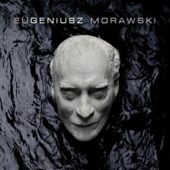
DEFINITIVE RECORDINGS

1} Don Quichotte
2} Ulalume
3} Nevermore
As part of the comprehensive and extensively informative booklet notes for this recording, the following lines captured my attention and are printed
here as follows. Charles Baudelaire once wrote: "Many a jewel sleeps buried in shadow and oblivion, far from the miner's pickaxe and drill;
many a flower reluctantly pours forth its sweet perfume like a secret in the depths of solitude". Those words of the French poet seem to fit perfectly
Eugeniusz Morawski. This album would have never happened without a truly infectious and, at the same time, inspiring enthusiasm of conductor Monika
Wolinska. It opens the first - and hopefully the possibly shortest - act of bringing the preserved compositional oeuvre of Morawski to light from a
deep mist of the 20th-century history. Will consecutive acts follow? The present album gathers all currently extant symphonic poems of Eugeniusz
Morawski. It is, then, high time to grab our artistic pickaxes, start intellectual drilling and finally interrupt his long, black sleep ... {Marcin Gmys}
Polish composer Eugeniusz Morawski (1876-1948) is yet another glaring example of an unjustly overlooked and neglected composer.
And also, to add insult to injury, at least 75% of his scores were destroyed during the Warsaw Uprising. These included, amongst many other works,
3 concertos, 6 string quartets, 6 symphonic poems, 5 operas and 3 symphonies. Therefore, any new or subsequent recordings, including this new release
on the Polish CD Accord label, can only offer but a glimpse at this fascinating composer, but what a revelatory glimpse it turns out
to be nonetheless.
Written in 1909, Don Quichotte was Morawski's first symphonic poem. Unlike the version by Richard Strauss, it is
not meant to recreate the story of Don Quichotte, but rather to erect a portrait of the man himself, madness and all. It is writ large, with bold and
vivid colors, unfurling its complex thematic material in an innovative and impressive fashion. Its orchestration is assured and always serves the mood
of the music at any given moment. The episodes depicting when Don Quichotte's imagination got the better of him, indicate a composer ahead of his
time and in complete control of his craft, pointing the way to music's future.
The other two symphonic poems, Ulalume and Nevermore, are both based on the poetry
of Edgar Allan Poe, and therefore by default expose a less flamboyant side of the composer, though no less creative. The 24 minute long single movement
Ulalume clearly demonstrates that Morawski was more than capable at molding and developing subjects and motifs over extended stretches
of time, without having to resort to repetitive duplication. It builds a head of steam a few times along the way, but always retains the shadowy atmosphere
of the text. Nevermore, based on The Raven, opens with a lugubrious, lower register fugue. Various episodes
follow where again the main focus of the music is never out of reach. Like the other pieces, this one is built around a very confident harmonic language,
rich in late 19th century romantic imagery, as seen through a 20th century lens.
Many thanks must go to conductor Monika Wolinska, the first Polish female conductor to grace the stage of Carnegie Hall in 2009,
for pulling this music out of the shadows and in doing so, rescuing this brilliant composer from the jaws of oblivion. The members of Sinfonia Varsovia
also deserve commendations for taking part in this milestone, and establishing the benchmark rendition of these orchestral works for future musicians
to emulate.
Jean-Yves Duperron - June 2012